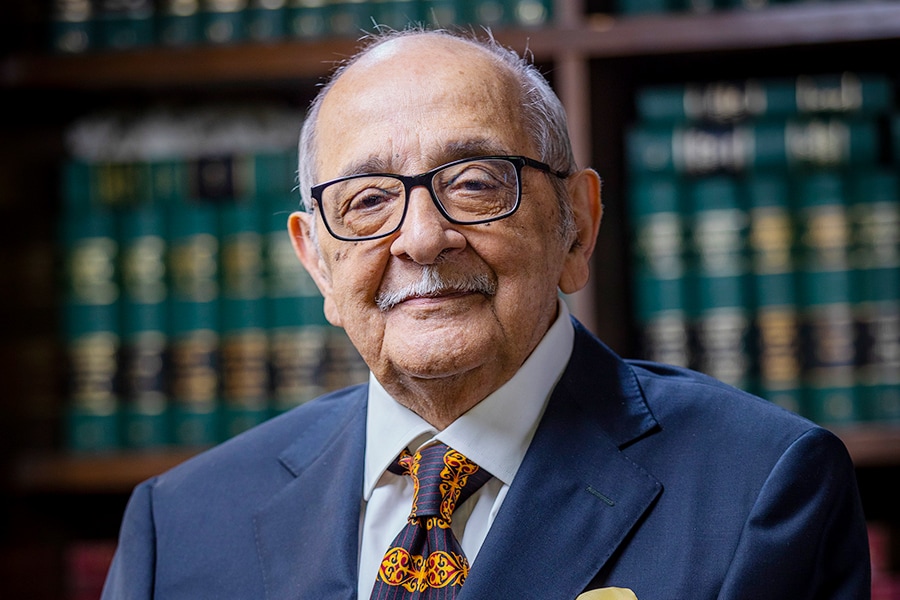
Former Supreme Court advocate Fali Nariman dies at 95
Nariman, who represented various landmark cases through his career, upheld Constitutional values, freedom of speech and expression, and independence of the judiciary
 Former Supreme court advocate Fali Nariman passed away on February 21 in Delhi.
Image: Ilaksha
Former Supreme court advocate Fali Nariman passed away on February 21 in Delhi.
Image: Ilaksha
Former Supreme court advocate Fali Nariman died on February 21 in Delhi. He was 95.
Among the foremost experts on the Indian Constitution, Nariman, a Padma Bhushan and Padma Vibhushan honoree and nominated member of the Rajya Sabha between 1999 and 2005, represented some of the most landmark cases in the judicial history of India.
As per a report in The Indian Express today that quotes sources close to his family, Nariman died around 1.15 am. “He was not unwell and breathed his last in his sleep,” the report says. He is survived by his son, former Supreme Court justice Rohinton Nariman.
Born in 1929, Nariman was a law graduate from the Government Law College in Bombay. He started his legal practice the year the Constitution of India was enacted in November 1949, and through the course of his career, was instrumental in reshaping Constitutional law. Throughout his life, he upheld the values of equality and secularism. “I have lived and flourished in a secular India. In the fullness of time if God wills, I would also like to die in a secular India,” he wrote in his autobiography When Memory Fades (2010).





